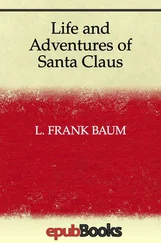Charles Dickens - Life And Adventures Of Martin Chuzzlewit
Здесь есть возможность читать онлайн «Charles Dickens - Life And Adventures Of Martin Chuzzlewit» весь текст электронной книги совершенно бесплатно (целиком полную версию без сокращений). В некоторых случаях можно слушать аудио, скачать через торрент в формате fb2 и присутствует краткое содержание. Жанр: Классическая проза, на английском языке. Описание произведения, (предисловие) а так же отзывы посетителей доступны на портале библиотеки ЛибКат.
- Название:Life And Adventures Of Martin Chuzzlewit
- Автор:
- Жанр:
- Год:неизвестен
- ISBN:нет данных
- Рейтинг книги:5 / 5. Голосов: 1
-
Избранное:Добавить в избранное
- Отзывы:
-
Ваша оценка:
- 100
- 1
- 2
- 3
- 4
- 5
Life And Adventures Of Martin Chuzzlewit: краткое содержание, описание и аннотация
Предлагаем к чтению аннотацию, описание, краткое содержание или предисловие (зависит от того, что написал сам автор книги «Life And Adventures Of Martin Chuzzlewit»). Если вы не нашли необходимую информацию о книге — напишите в комментариях, мы постараемся отыскать её.
Life And Adventures Of Martin Chuzzlewit — читать онлайн бесплатно полную книгу (весь текст) целиком
Ниже представлен текст книги, разбитый по страницам. Система сохранения места последней прочитанной страницы, позволяет с удобством читать онлайн бесплатно книгу «Life And Adventures Of Martin Chuzzlewit», без необходимости каждый раз заново искать на чём Вы остановились. Поставьте закладку, и сможете в любой момент перейти на страницу, на которой закончили чтение.
Интервал:
Закладка:
Martin handed her to a chair. Her first words arrested him before he could get back to his own seat.
“Pray, sir!” said Mrs Hominy, “where do you hail from?”
“I am afraid I am dull of comprehension,” answered Martin, “being extremely tired; but upon my word I don't understand you.”
Mrs Hominy shook her head with a melancholy smile that said, not inexpressively, “They corrupt even the language in that old country!” and added then, as coming down a step or two to meet his low capacity, “Where was you rose?”
“Oh!” said Martin “I was born in Kent.”
“And how do you like our country, sir?” asked Mrs Hominy.
“Very much indeed,” said Martin, half asleep. “At least—that is— pretty well, ma'am.”
“Most strangers—and partick'larly Britishers—are much surprised by what they see in the U-nited States,” remarked Mrs Hominy.
“They have excellent reason to be so, ma'am,” said Martin. “I never was so much surprised in all my life.”
“Our institutions make our people smart much, sir,” Mrs Hominy remarked.
“The most short-sighted man could see that at a glance, with his naked eye,” said Martin.
Mrs Hominy was a philosopher and an authoress, and consequently had a pretty strong digestion; but this coarse, this indecorous phrase, was almost too much for her. For a gentleman sitting alone with a lady—although the door WAS open—to talk about a naked eye!
A long interval elapsed before even she—woman of masculine and towering intellect though she was—could call up fortitude enough to resume the conversation. But Mrs Hominy was a traveller. Mrs Hominy was a writer of reviews and analytical disquisitions. Mrs Hominy had had her letters from abroad, beginning “My ever dearest blank,” and signed “The Mother of the Modern Gracchi” (meaning the married Miss Hominy), regularly printed in a public journal, with all the indignation in capitals, and all the sarcasm in italics. Mrs Hominy had looked on foreign countries with the eye of a perfect republican hot from the model oven; and Mrs Hominy could talk (or write) about them by the hour together. So Mrs Hominy at last came down on Martin heavily, and as he was fast asleep, she had it all her own way, and bruised him to her heart's content.
It is no great matter what Mrs Hominy said, save that she had learnt it from the cant of a class, and a large class, of her fellow countrymen, who in their every word, avow themselves to be as senseless to the high principles on which America sprang, a nation, into life, as any Orson in her legislative halls. Who are no more capable of feeling, or of caring if they did feel, that by reducing their own country to the ebb of honest men's contempt, they put in hazard the rights of nations yet unborn, and very progress of the human race, than are the swine who wallow in their streets. Who think that crying out to other nations, old in their iniquity, “We are no worse than you!” (No worse!) is high defence and “vantageground enough for that Republic, but yesterday let loose upon her noble course, and but to-day so maimed and lame, so full of sores and ulcers, foul to the eye and almost hopeless to the sense, that her best friends turn from the loathsome creature with disgust. Who, having by their ancestors declared and won their Independence, because they would not bend the knee to certain Public vices and corruptions, and would not abrogate the truth, run riot in the Bad, and turn their backs upon the Good; and lying down contented with the wretched boast that other Temples also are of glass, and stones which batter theirs may be flung back; show themselves, in that alone, as immeasurably behind the import of the trust they hold, and as unworthy to possess it as if the sordid hucksterings of all their little governments—each one a kingdom in its small depravity—were brought into a heap for evidence against them.
Martin by degrees became so far awake, that he had a sense of a terrible oppression on his mind; an imperfect dream that he had murdered a particular friend, and couldn't get rid of the body. When his eyes opened it was staring him full in the face. There was the horrible Hominy talking deep truths in a melodious snuffle, and pouring forth her mental endowments to such an extent that the Major's bitterest enemy, hearing her, would have forgiven him from the bottom of his heart. Martin might have done something desperate if the gong had not sounded for supper; but sound it did most opportunely; and having stationed Mrs Hominy at the upper end of the table he took refuge at the lower end himself; whence, after a hasty meal he stole away, while the lady was yet busied with dried beef and a saucer-full of pickled fixings.
It would be difficult to give an adequate idea of Mrs Hominy's freshness next day, or of the avidity with which she went headlong into moral philosophy at breakfast. Some little additional degree of asperity, perhaps, was visible in her features, but not more than the pickles would have naturally produced. All that day she clung to Martin. She sat beside him while he received his friends (for there was another Reception, yet more numerous than the former), propounded theories, and answered imaginary objections, so that Martin really began to think he must be dreaming, and speaking for two; she quoted interminable passages from certain essays on government, written by herself; used the Major's pocket-handkerchief as if the snuffle were a temporary malady, of which she was determined to rid herself by some means or other; and, in short, was such a remarkable companion, that Martin quite settled it between himself and his conscience, that in any new settlement it would be absolutely necessary to have such a person knocked on the head for the general peace of society.
In the meantime Mark was busy, from early in the morning until late at night, in getting on board the steamboat such provisions, tools and other necessaries, as they had been forewarned it would be wise to take. The purchase of these things, and the settlement of their bill at the National, reduced their finances to so low an ebb, that if the captain had delayed his departure any longer, they would have been in almost as bad a plight as the unfortunate poorer emigrants, who (seduced on board by solemn advertisement) had been living on the lower deck a whole week, and exhausting their miserable stock of provisions before the voyage commenced. There they were, all huddled together with the engine and the fires. Farmers who had never seen a plough; woodmen who had never used an axe; builders who couldn't make a box; cast out of their own land, with not a hand to aid them: newly come into an unknown world, children in helplessness, but men in wants—with younger children at their backs, to live or die as it might happen!
The morning came, and they would start at noon. Noon came, and they would start at night. But nothing is eternal in this world; not even the procrastination of an American skipper; and at night all was ready.
Dispirited and weary to the last degree, but a greater lion than ever (he had done nothing all the afternoon but answer letters from strangers; half of them about nothing; half about borrowing money, and all requiring an instantaneous reply), Martin walked down to the wharf, through a concourse of people, with Mrs Hominy upon his arm; and went on board. But Mark was bent on solving the riddle of this lionship, if he could; and so, not without the risk of being left behind, ran back to the hotel.
Captain Kedgick was sitting in the colonnade, with a julep on his knee, and a cigar in his mouth. He caught Mark's eye, and said:
“Why, what the “Tarnal brings you here?”
“I'll tell you plainly what it is, Captain,” said Mark. “I want to ask you a question.”
“A man may ASK a question, so he may,” returned Kedgick; strongly implying that another man might not answer a question, so he mightn't.
Читать дальшеИнтервал:
Закладка:
Похожие книги на «Life And Adventures Of Martin Chuzzlewit»
Представляем Вашему вниманию похожие книги на «Life And Adventures Of Martin Chuzzlewit» списком для выбора. Мы отобрали схожую по названию и смыслу литературу в надежде предоставить читателям больше вариантов отыскать новые, интересные, ещё непрочитанные произведения.
Обсуждение, отзывы о книге «Life And Adventures Of Martin Chuzzlewit» и просто собственные мнения читателей. Оставьте ваши комментарии, напишите, что Вы думаете о произведении, его смысле или главных героях. Укажите что конкретно понравилось, а что нет, и почему Вы так считаете.









